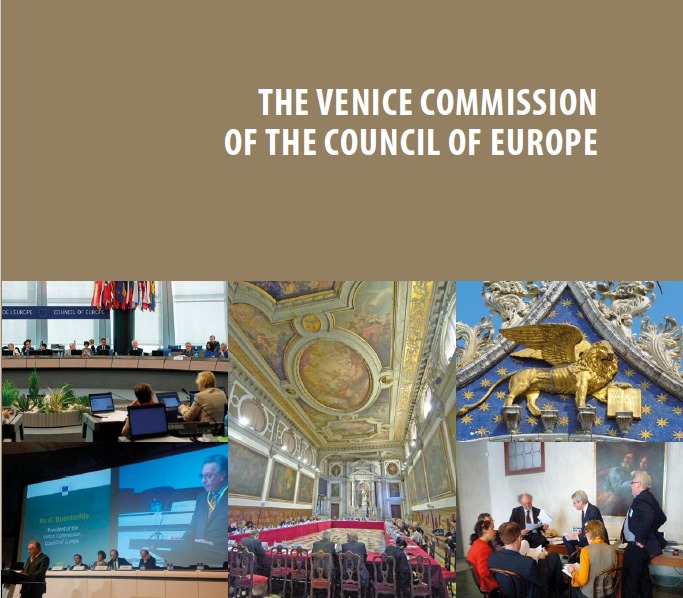THE BILLS FOR JUDICIAL REFORM RETAIN THE GOVERNMENT’S CONTROL AND INCREASE THREAT TO DEMOCRACY
The government published a set of bills[1] it said it intends to rush through Parliament before the summer recess to implement a portion of the measures required by the Venice Commission in its December 2018 report.
At face value the government’s bills implement its commitment with the Venice Commission to decrease the control of the government on the judicial appointments committee that selects nominees to fill vacant positions of judge or magistrate.
Also, at face value the government has withdrawn its power of deciding on the final nominees presented by the judicial committee, giving the President a final choice between three shortlisted candidates identified by the committee.
In our reaction to the government’s proposals, in the form of a letter to the Venice Commission earlier in 2020, we wondered why the government did not want to allow the judicial appointments committee to make the final choice and instead left that choice to the President.
We pointed out that the President is chosen by the government and is therefore effectively an extension of the government’s will. The government assured the Venice Commission they would change the way the President is elected to ensure the government loses control of that choice.
The bills published by the government reveal the duplicitous intent of the government. The government is proposing a procedure whereby its nominee for the Presidency is voted upon twice in the hope of a two-thirds majority. Should its candidate fail to be elected in two voting rounds, the government can then proceed to appoint its candidate anyway.
This is a sick joke. By way of example and for purely illustrative purposes Robert Abela can decide to appoint Glenn Bedingfield as President. The Opposition would have two opportunities to agree and support the choice. If the Opposition doesn’t agree, Robert Abela can appoint Glenn Bedingfield as President of Malta anyway.
No way can it be claimed that this ‘reformed’ method is an improvement on the current setup, that this procedure in any way reduces the authority of the government to choose alone who is President, or that it ensures the independence of the Presidency from the government of the day. This was not a major issue while the President retained a purely ceremonial function. But now that the government is proposing to assign executive and autonomous authority to the President, precisely in order to remove it from the government of the day, the manner of appointing the President has become a matter of national importance.
And yet there has been no public discussion or consultation on this matter whatsoever.
This fig leaf for constitutional consensus is also being applied for the procedure of choosing the Chief Justice. This is just as grievous because the Chief Justice chairs the judicial appointments committee and if the choice of Chief Justice is made by the government’s effectively exclusive power, the government would exert influence on the judicial appointments committee as well.
The fact is, had there been any form of consultation on these reforms, Repubblika and many others would have had the opportunity to provide alternative methods of appointing the President and the Chief Justice that would have met the objective of ensuring their autonomy from the government of the day and would still prove to be practical and workable solutions that prevent or manage deadlocks. Malta is far from being the only democracy in the world and other models would have been useful, had they been considered.
On the manner of choosing the President, particularly if the government intends to empower that office with more powers, Malta could look at models of choosing non-executive presidents of other democracies. Depending on the extent of authority being considered, an option could be direct universal suffrage. Another alternative would be the formation of an electoral college that extends beyond members of the House of Representatives and includes Mayors and Local Councillors and, when and if such an entity is formed, members of a standing Council of State.
The choice of the manner of choosing the President requires proper national debate and would need to be considered in the context of all the other reforms being considered for our Constitution.
Similarly, the Chief Justice could be appointed directly by the branch of government they are nominated to lead: the judiciary. We see no reason why the judicial appointments committee would alone not be suitable to make this choice, although an alternative could be an election from among and by judges and magistrates.
We don’t agree with any role for Parliament in the nomination of the Chief Justice. Government’s proposal will only embed political intrusion on judicial independence in the Constitution. While cross-party consensus is not a guarantee of judicial independence, it may reduce the nomination of the Chief Justice to a back room deal between the two main political leaders.
We are therefore concerned that the haste, the lack of consultation and the lack of expert insight into the drawing up of these Bills will result in yet another botched job. Our democracy will not be improved by these changes. On the contrary, we are introducing new dangers.
By giving new powers to the President, retaining the government’s control on the choice of the occupants of that position, and doing nothing about ensuring accountability for a new executive office that will now shift from a purely ceremonial role to having power over who gets to sit in judgement of citizens, our democracy will be at an even greater risk than it already is.
We note that the government has ignored the invitation of the Venice Commission to run these Bills by it before publication. The government is also abandoning its promises to call a Constitutional Convention before making vital changes to the way our country is run. And we now sadly expect the President to sign into law new powers for himself, without keeping the public commitment he made to hold a Constitutional Convention where voices from outside Parliament are heard and duly considered.
Only Parliament can stop this Constitutional hatchet job in its tracks, and we urge MPs to send the government back to the drawing board and insist on proper consultation before implementing these important measures.
We will be informing the European Commission, the Venice Commission and the Parliamentary Assembly of the Council of Europe of our concerns.
[1] Bills 140, 141 and 142.




